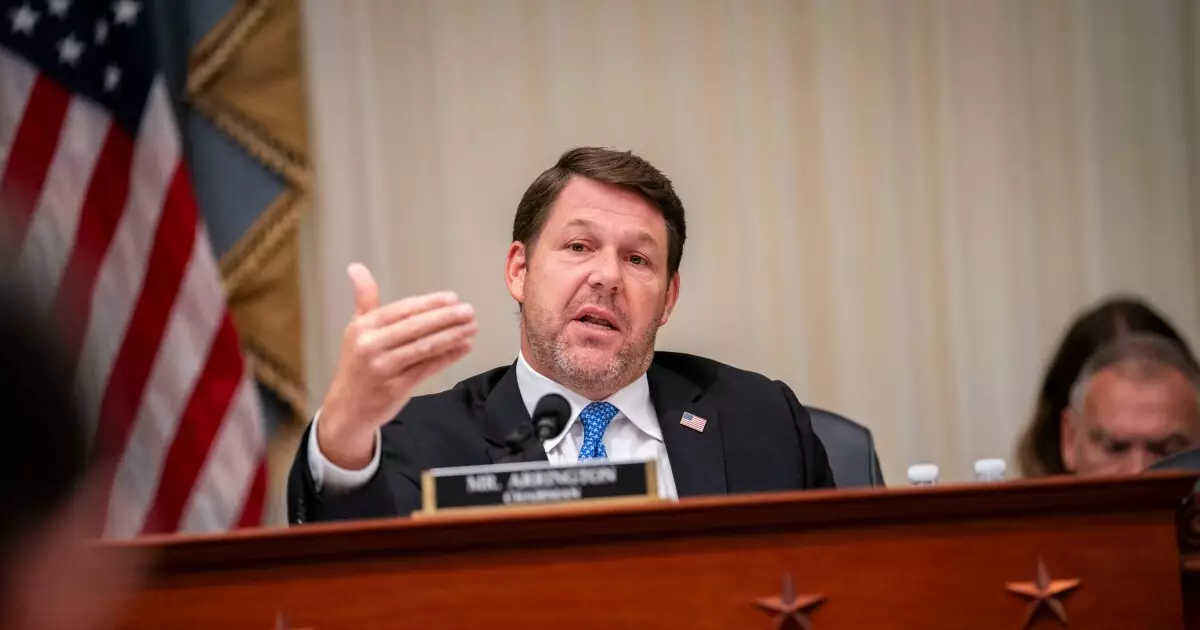5 Alarming Truths About the 2025 Budget Showdown

The unfolding drama in the U.S. House of Representatives regarding the fiscal 2025 budget resolution encapsulates the ongoing struggle within the Republican Party. With the Senate having passed its version with mixed reactions, the House is now poised for a fierce confrontation, reflecting deeper ideological rifts. Certain conservative factions within Congress have deemed the Senate’s proposal not only inadequate but also a capitulation that dilutes the original House bill—an assessment that signifies more than mere political disagreement; it’s a crack in the party’s veneer of unity.
For many, this discrepancy is not just a budgetary battle but a philosophical crossroads. While the conservative wing pushes for stringent fiscal discipline, moderates push back against radical cuts that may compromise essential services. It’s a tough balancing act that demands not just discussion, but also real compromise from both sides.
Reconciliation: The Double-Edged Sword
At the heart of the debate lies the reconciliation process, which some Republican leaders herald as a “magic bullet” for advancing their agenda. This legislative maneuver is intended to sidestep a filibuster, allowing President Trump’s promises—like extending the Tax Cuts and Jobs Act (TCJA)—to advance with a simple majority. However, this reliance on reconciliation presents its own perils. The constraints it places on creative policymaking can lead to cavalier budgeting practices that dangerously minimize the long-term consequences of fiscal decisions.
Notably, while the Senate’s proposal inches toward returning power to the states and lowering tax burdens for the working class, fiscal conservatives, such as House Budget Chair Jodey Arrington, emphasize the peril of avoiding offsets when scoring tax policy. This is a crucial point, yet it seems overshadowed by the theatrics of party politics. One can’t help but wonder whether the drive for tax cuts has extinguished the necessary scrutiny of how we’ll finance them.
The Threat to Municipal Bonds
As lawmakers grapple with fiscal decisions, the potential limits to the municipal bond tax exemption loom ominously, casting a shadow over the municipal market. Municipal bonds have historically served as a refuge for investors and essential financing tools for local governments. However, the budget resolution discussions indicate impending changes that could obstruct this financial lifeline.
A diminishing of this tax exemption not only threatens local investment but also jeopardizes infrastructure projects. If cuts to these exemptions are seen as mere collateral in a larger budgetary skirmish, the municipalities that depend on these funds for development and public services could suffer greatly.
The Math Behind the Cuts
When we delve into the fiscal figures, the pitfalls of both the Senate and House proposals become glaringly evident. The Senate’s projected $4 billion floor in cuts pales in comparison to the House’s proposed $1.5 trillion. Relying on a “current policy baseline” enables the Senate to construct an illusion of fiscal responsibility by obscuring the growing deficit that stems from their decisions. This mathematical sleight of hand may provide short-term political cover, but in the long run, it contributes to the larger crisis of national debt, dangerously pushing future generations into a corner with unsustainable financial burdens.
Furthermore, the announced increase in the debt ceiling — from $4.5 trillion in the House bill to a daunting $5 trillion in the Senate version — raises serious alarms. This is not just a number; it’s a signal of disregard for fiscal restraint that could deepen economic instability, stoke inflation, and lead to higher interest rates, all of which disproportionately affect working-class families.
A Call for Genuine Unity
In a climate of division and unrest, Speaker Mike Johnson’s call for Republican unity reveals the essential nature of collaboration. However, the pressure cooker environment the House finds itself in raises serious questions: Can true consensus be reached when fundamental ideological differences threaten to fracture the party? As fiscal conservatives openly mobilize against what they see as a compromise too far, the opportunity for genuine policy development hangs by a thread.
If the Republican majority can achieve a unity bolstered by significant debate and reflective policymaking, they could garner the support needed to navigate this complicated landscape. However, if they succumb to knee-jerk reactions driven by fear of dissent within their ranks, the path ahead may not only be rocky but could signal the end of the era of conservative governance as we know it. The hope is that both wings of the party can collaborate for the greater good, but the opportunity is fleeting, and time is running out.





